calsfoundation@cals.org
William Vollie (Bill) Alexander Jr. (1934–)
William Vollie (Bill) Alexander Jr. represented the state of Arkansas in the U.S. House of Representatives from 1969 to 1993, rising to the post of Chief Deputy House Majority Whip, an important position of chamber leadership.
Bill Alexander was born on January 16, 1934, in Memphis, Tennessee, to William V. Alexander Sr. and Spencer (Buck) Alexander. The family moved to Osceola (Mississippi County) soon thereafter. He graduated from Osceola High School in 1951. That same year, he became an Eagle Scout. From 1951 to 1953, he served in the U.S. Army during the Korean War. He attended the University of Arkansas (UA) in Fayetteville (Washington County), joined the Kappa Sigma Fraternity, and then moved back to the city of his birth to earn a Bachelor of Arts degree in pre-law from Southwestern at Memphis (now Rhodes College) in 1957. He earned a law degree from Vanderbilt University in Nashville, Tennessee, in 1960.
Alexander married Marjorie Gwendolyn Haven of Forrest City (St. Francis County) on February 5, 1957, and they had one daughter. They divorced in 1975, and Alexander remarried two years later. That marriage also ended in divorce. Alexander married Debi Drury Alexander on December 2, 1989. They have two children.
After law school, Alexander served as a law clerk to Chief Judge Marion S. Boyd in the Western District of Tennessee in Memphis. After his clerkship, he served as an associate in the Montedonico, Boone, Gilliland, Heiskell and Loch Law Firm, also in Memphis. Alexander then moved back to Osceola and became a partner in his own firm of Swift and Alexander.
He was elected as a Democrat from the First Congressional District of Arkansas in 1968 and was re-elected to eleven succeeding Congresses until 1992. Most of Alexander’s earlier elections were won by at least sixty-five percent of the vote in his heavily Democratic district. In his first election, he defeated Republican Guy Newcomb, also of Osceola, in a run to succeed the retiring Representative E. C. “Took” Gathings. In 1976, Alexander defeated farmer, seed merchant, and later Republican state chairman Harlan “Bo” Holleman of Wynne (Cross County). In 1982, he defeated the Republican Chuck Banks.
Alexander’s bid for a thirteenth term in 1992 was crippled when newspapers reported that he had written 487 checks totaling $208,546 on a U.S. House of Representatives bank account. This was a common practice among representatives at the time, but newspaper readers were left with the impression that Alexander’s use of the account was excessive. Shortly before the primary election, the Arkansas Democrat-Gazette printed a major story on April 24, 1992, claiming that Alexander had used $16,200 in campaign contributions to cover personal debts. A campaign finance report showed that these campaign expenditures were legal, and James O. Powell, writing in the May 21, 1992, issue of the Jonesboro Sun, decried the controversy as a “fake issue.” However, on May 26, 1992, Alexander was defeated in the Democratic primary by his former staff assistant Blanche Lambert.
Alexander served on the U.S. House Appropriations Committee and championed alternative fuel options, such as using corn for fuel as ethanol. He authored the Guaranteed Commercial Operating Loan Program for agribusinesses, farmers, and ranchers. Alexander was also the chief sponsor of the legislation that created the National River Academy and the Mid-South Energy Project. He served on the Alcohol Fuels Commission and the Clean Fuels Council. He championed rural water projects throughout his district for economic development purposes. More than $30 billion in economic development resulted from his congressional initiatives.
Alexander also has extensive experience in international trade matters. He founded the House Export Task Force, co-sponsored legislation to create the Foreign Commercial Service in U.S. embassies, and established agricultural export trade offices in twenty-three foreign countries. He also sponsored the legislation that created the Mississippi Valley Trade Center, resulting in hundreds of millions of trade dollars for American products.
As Chief Deputy Majority Whip and member of the Foreign Operations Subcommittee, Alexander was selected for numerous special assignments in foreign countries. He served as a U.S. envoy to Cuba and negotiated the U.S.-Cuba Agenda with Fidel Castro to allow the exports from the United States to Cuba, an important initiative for the rice farmers of his district; he met with Castro three times. He presented a bill to exempt U.S. agricultural products from the trade embargo, a policy that did not pass in the 1980s but was put back on the table during the first 100 days of the administration of President Barack Obama. Alexander once said: “If a Kansas wheat farmer can sell wheat to the Soviet Union, why should an Arkansas rice farmer be forever forbidden from selling his rice to Cuba?”
He also served as a negotiator at the U.S.-Japan Rice Summit, a U.S. emissary to the People’s Republic of China, a U.S. emissary to Nicaragua, and confidential liaison to the Vietnamese government for the transition team of Bill Clinton and Al Gore in 1992. He was appointed to the NAFTA and Beyond Commission by President Clinton and continues his interest in foreign affairs as a member of the Board of Directors of the National Democratic Institute for International Affairs.
Alexander lived in Virginia during his service in Congress and still resides there in McLean. He joined eleven other former members of Congress in a law firm known as the Advantage Associates International. He is an active member of Rotary International, the National Eagle Scouts Association, the Sons of the American Revolution, the American Bar Association, the American Legion, Farm Bureau, Phi Delta Phi Fraternity, and the American Academy of Political Science, as well as the Izack Walton League.
For additional information:
“Alexander Wins Race, Beats GOP Candidate for Fifth House Term.” Arkansas Gazette, November 3, 1976, p. 4A.
“Alexander Wins Resoundingly in First District.” Arkansas Gazette, November 3, 1982, p. 6A.
Lillestan, Randy. “Political Foes Seize Alexander Finances as Fodder for Campaign.” Arkansas Democrat-Gazette, April 3, 1992, pp. 1A, 12A.
Thomas, Dorothy, and Henry Woods Jr. “Bill Alexander.” Arkansas Lawyer 11 (July 1977): 88–91, 93.
“William Vollie (Bill) Alexander Jr.” Biographical Directory of the United States Congress. http://bioguide.congress.gov/scripts/biodisplay.pl?index=A000103 (accessed April 6, 2022).
Kay C. Goss
Alexandria, Virginia



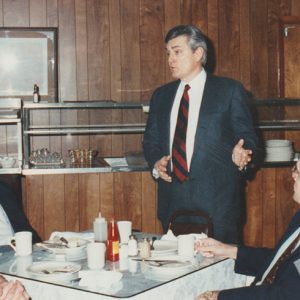
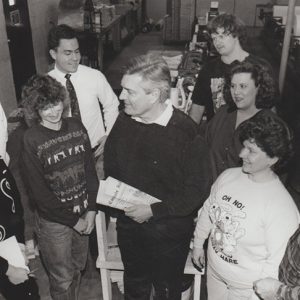
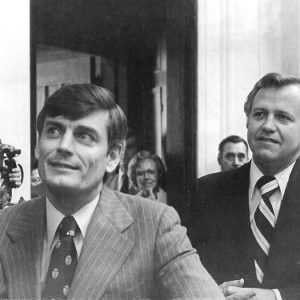


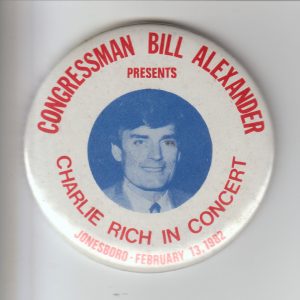
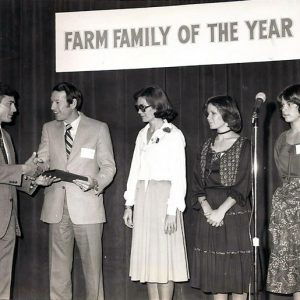
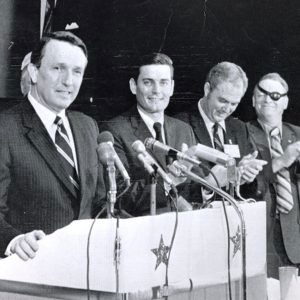




Comments
No comments on this entry yet.